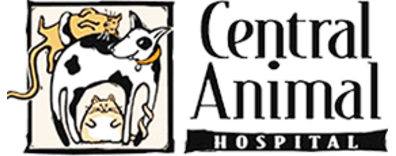How Do I Know the Best Diet for My Dog?
General

That’s because the food that we eat and the nutrition that it provides makes a big difference to our overall health. The same can be said for our animals, including our dogs. Feeding them the right food can help them to grow and develop properly, stay healthy, and enjoy a great quality of life.
Dogs are omnivores. This means that they can eat both meat-based and plant-based foods to get all of the nutrition that they need to stay as healthy as possible. But with so many different options available, how can you tell what is the best diet for your dog? Let’s look at some of the things that you need to consider.
How Old is Your Dog?
Even some experienced owners are surprised to discover that a dog’s nutritional needs change depending on their age. This means that one of the first things that you need to think about is how old your dog is.
While they may rely solely on their mother’s milk until they are around eight weeks old, puppies then require a very specific diet to help support their growth and development. However, since their stomach is still fairly small, they will need to eat little and often. Choose a formula of feed that is specifically designed for puppies, since these will contain the high-calorie content and nutrients needed to ensure that your dog grows into a healthy adult.
Dogs usually become adults when they are between 12 and 18 months of age, with larger dogs often considered adults in the earlier part of this timeline. Their stomach will have grown, meaning that they can eat larger meals less frequently, with most vets recommending that you feed them at breakfast and again at dinner time. They also need fewer calories since they won’t be growing, and less fat too. Choose an adult feed that contains enough protein and nutrients to keep them healthy and give them enough energy to stay active.
Exactly when a dog reaches its senior years can vary, but usually starts at around 8 years old for larger breeds. Older animals are more likely to experience health conditions, which means that your dog could benefit from nutritional supplements, such as glucosamine, which is recommended for dogs with arthritis. Your vet will be able to advise you if that’s the case. They will also need fewer calories since their natural slow-down means that they won’t be burning as many calories, and continuing on their previous diet could cause them to gain weight. Your canine pal’s teeth might be a little worse for wear too, meaning that softer foods could be preferable.
Dry vs. Wet Food
One of the biggest challenges many dog owners face is the choice between offering wet or dry food. While both can provide the nutrition your dog needs, it may be that one is better for your dog than the other.
Unsurprisingly, wet food has a much higher moisture content than dry. This is because a special gravy containing vitamins, minerals, and grain is added to the protein sources that create the bulk of the feed. Reading the label should provide information about how much moisture the feed contains. Wet foods are particularly good for dogs who don’t drink as much water as they should, who suffer from issues with their kidneys or urinary system, or who have problems with their teeth. Wet food is also considered to smell more appetizing to dogs (even if the smell can turn the stomach of a human!) and create a longer-lasting feeling of fullness.
Dry dog food contains similar protein sources, but rather than adding moisture in the form of gravy, the proteins are crushed in order to create a dough that is then used to form kibble. Once the kibble has been dried, it is sprayed with vitamins, minerals, fats, and oils before it is packaged. Dry food is often less expensive than wet alternatives, and it’s easier to store and include in slow feeders and puzzle toys. Dry food also gives your dog’s jaw a workout and has an abrasive action that can help to clean your dog’s teeth. Dr. Brown's recommended diet of choice is Life's Abundance, the food fed exclusively in Central Animal Hospital's kennels and to the doctor's own pets since 2003. It's nutritionally dense, has no artificial preservatives, has guaranteed live probiotics, and is shipped directly to your doorstep. It's clear why this food choice stands out above the rest. Visit our online pet pharmacy and pet food delivery page HERE to learn more.
If you aren’t sure which diet is most suitable for your dog, our dedicated veterinary team would be happy to advise you. Please CONTACT US today to schedule an appointment.
